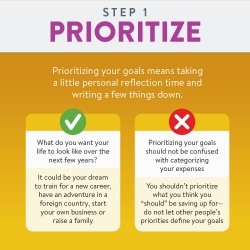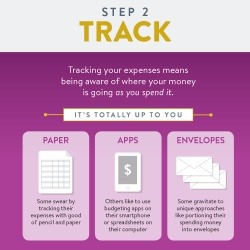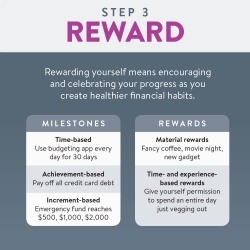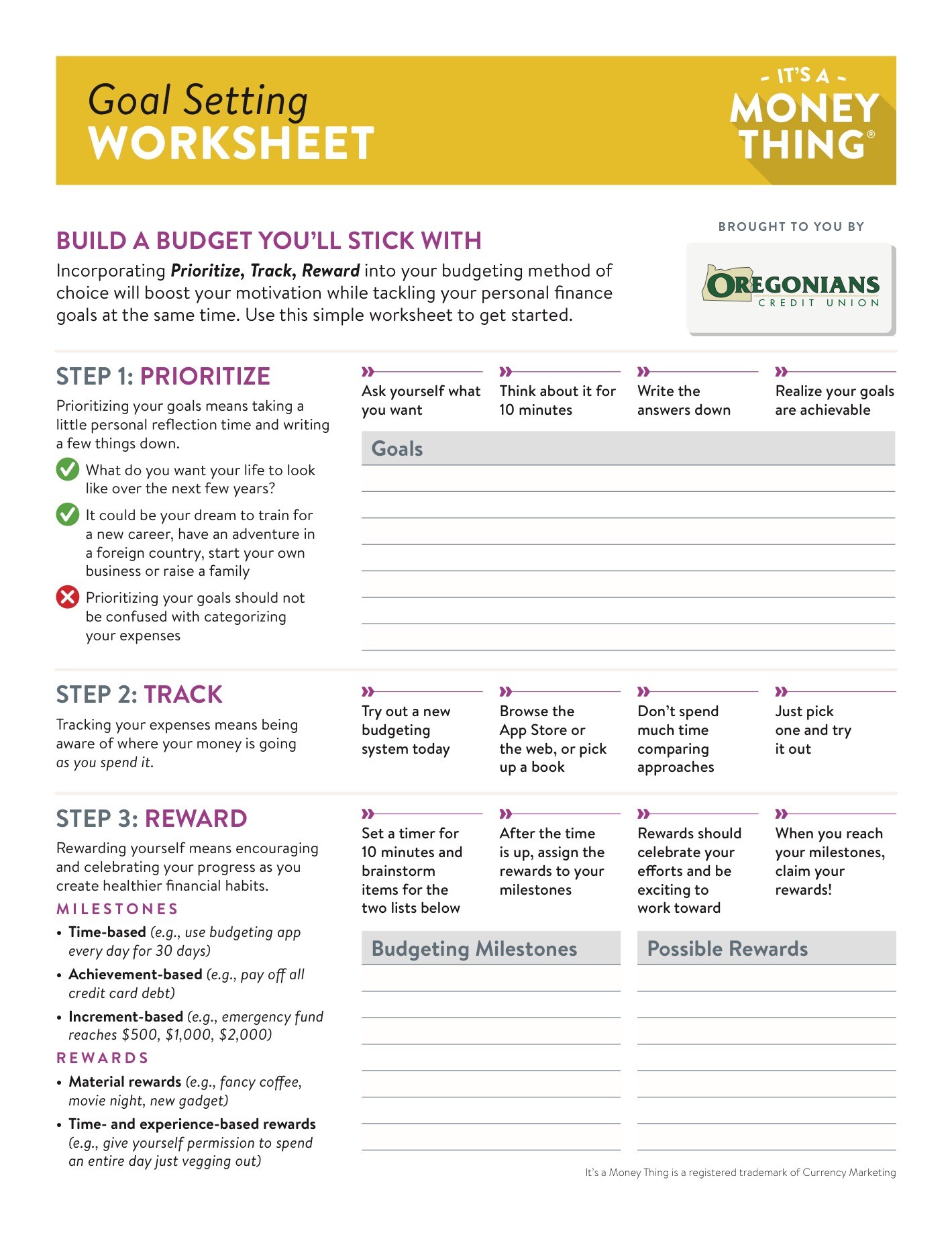Use Psychology to Build a Budget You'll Stick With
When you start looking for financial advice (or any kind of advice, for that matter), experts will share their take on what’s “good” and what’s “bad.” In personal finance, there are some classifications that we can all agree on: Debt is bad. Emergency funds are good. Overdrawing your account is bad. Earning interest on your savings is good.
Aside from the obvious examples, the guidelines are a bit murky; plus, the financial advice gurus often contradict each other. One expert will tell you that spending money is “bad” and saving money is “good.” The next will say that saving money is “bad” and investing it is “good.” Another might tell you that there are some “bad” investments and some forms of “good” debt.
If you’re waging an inner battle of good vs. bad every time you whip out your credit card or peek at your monthly bank statement, it’s probably time to give your views on budgeting a shake-up. Start by losing the desire to classify everything as “good” and “bad.” There are good and bad ways to spend money, just as there are good and bad ways to save it. Following that logic, there are good and bad ways to budget.
A good budget is one that, quite simply, works for you. It allows you to meet your needs and plan for your goals, and—most importantly—it motivates you to keep on budgeting. Successful budgeting systems vary wildly in their approach and in the tools you need, but they tend to have the same three actions as building blocks:
- PRIORITIZE
- TRACK
- REWARD
These building blocks not only help you organize your finances, but they also have the ability to boost your motivation (and there’s real science to back that up). Read on to see if your current budgeting system has all three building blocks in place.

PRIORITIZE
What it means: Prioritizing your goals means taking a little personal reflection time and writing a few things down. Prioritizing your goals should not be confused with categorizing your expenses—we’re not talking about combing through your budgeting spreadsheet and pondering whether “fast food” and “takeout” should be combined into a single category. We’re not even talking about what you think you “should” be saving up for. No, we’re talking about your goals. What do you want your life to look like over the next few years? Is it your dream to train for a new career? To have an adventure in a foreign country? To throw an awesome wedding? To start your own business? To raise a family? Allow your goals to be a judgment-free zone—goals and dreams are as diverse as the minds and personalities behind them. In most cases, goals reach beyond the familiar trifecta of “pay off student loans, buy a house, save for retirement.”
Why it works: Prioritizing your goals gets you buzzing about what your money can do for you. There are a couple of motivating factors at work here. Number one: by prioritizing your goals, you are asserting your beliefs and your values. You are also reminding yourself of why you’re willing to adopt a budgeting system in the first place. Studies show that you’re more invested in activities that you see value in—and although budgeting literally deals with values (the dollars-and-cents kind), including your personal values in your budgeting system is what generates determination and stamina. Creating and sticking to a new routine is a pain if you think you have to or you should do it; it’s a lot easier if you’re mindful of why you want to do it. Number two: prioritizing your goals is a great starting point because it reminds you that you’re in charge. You have a say in where your money goes. Social scientists point to autonomy as being a critical element to sustain motivation—and what’s more autonomous than realizing that your budget is a collection of choices you make in order to create the life you want?
Get started: Grab a pencil and paper. Ask yourself what you want. Think about it for 10 minutes. Write the answers down. Realize they are achievable.

TRACK
What it means: Tracking your expenses means being aware of where your money is going as you spend it. This is the part where financial advice experts start to disagree again: some swear by tracking your expenses with good ol’ pencil and paper, others swear by budgeting apps and spreadsheets, and some push more unique approaches like portioning your spending money into envelopes. The good news is that it doesn’t really matter how you go about doing it, but just that you do it. When you track your expenses, a couple of things come to light right away. You start to realize that every transaction, no matter how big or how small, is either contributing to a goal or taking away from it. There’s no such thing as “buying a pumpkin spice latte just because.” You will soon see that the cost of your fancy coffee comes out of somewhere—ideally out of your budgeted spending money, but potentially out of your vacation fund or your groceries or your student loan repayment plan. The second thing you’ll notice is that the longer you’ve been tracking your expenses, the more you’ll see evidence of your progress.
Why it works: Yet another critical element in sustaining motivation is competence, or your ability to do something well. As it turns out, we thrive on being reminded that we’re improving. On the surface level, tracking your expenses helps you to identify your spending patterns and to course-correct when necessary. More importantly, by tracking your spending, you’re also tracking your efforts. You’re creating a record of your progress along with a record of your transactions. Before long, you’ll have tangible evidence of how your actions and your follow-through are contributing to a calmer, happier financial life. You’ll see how capable you are of budgeting. You’ll find it easier (and even exciting) to keep your budgeting winning streak going.
Get started: Try out a new budgeting system today. Browse the App Store or do a quick web search, or pick up a book on the topic. Don’t spend much time evaluating or comparing budgeting approaches. Just pick one and try it out.

REWARD
What it means: Rewarding yourself means encouraging and celebrating your progress as you create healthier financial habits. Don’t be afraid to use some creativity when defining your personal finance milestones and rewards. Milestones can be time-based (e.g., using a budgeting app every day for 30 days), achievement-based (e.g., paying off all credit card debt) or increment-based (e.g., having your emergency fund reach $500, $1,000, $2,000…). Rewards can take on many forms as well; material rewards are the most common, but consider incorporating time- and experience-based rewards into the mix too (for example, you can list “permission to spend an entire day just vegging out” as a reward).
Why it works: Quite simply, rewards feel good. They highlight our achievements and renew our commitment. As kids, we loved earning those gold star stickers, and although that familiar achievement/reward structure practically disappears in later years, it doesn’t mean that rewards are any less effective in adulthood. By assigning rewards to the milestone of any given goal, you’re creating added incentive and boosting your motivation. When you earn, claim and enjoy a reward, your brain gets an extra hit of dopamine, which in turn increases your focus and drive.
Get started: Set a timer for 10 minutes and brainstorm two lists: a list of budgeting milestones and a list of possible rewards. After the 10 minutes are up, assign the rewards to your milestones. They should reward your effort realistically and be super exciting to work toward at the same time. When you reach your milestones, claim your rewards.
The act of creating a budget contributes to your ability to follow it through. It solidifies your values, it promotes competence and it highlights your achievements as you work through it. Incorporating Prioritize, Track, Reward into your budgeting method of choice will boost your motivation while tackling your personal finance goals at the same time.
Activity
Incorporation Prioritize, Track, Reward into your budgeting method of choice will boost your motivation while tackling your personal finance goals at the same time. Use this simple worksheet to get started.

Was this information useful? Visit our It's A Money Thing home page for more quick videos and helpful articles to help you make sense of your money, one topic at a time! Check back, new topics will be introduced regularly.








